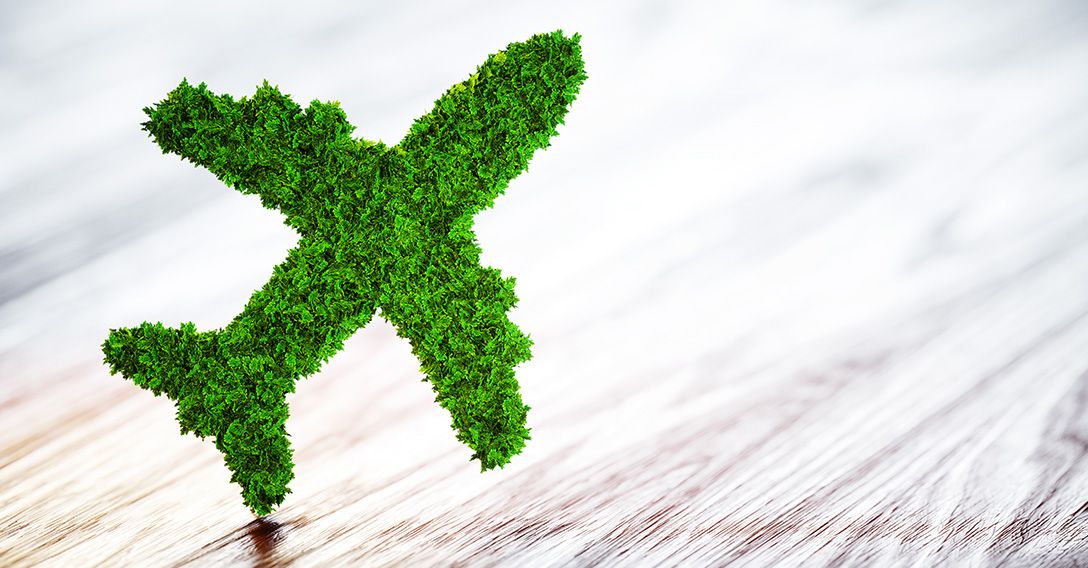In a world like ours, we got to be more careful about our decisions and the consequences our actions can have. When it comes to travel, the same should be taken into consideration. For instance, it shouldn’t come as a surprise the fact that flights around the world have a destructive impact on the environment.
Hence, eco flights have become a sought after way to travel not only by travelers but also by airlines and other companies who sustain diverse gas emissions related projects.
The latest trend which got specific attention and has been largely promoted is carbon offsetting. To refresh your mind, carbon offset is a practice in which travelers can choose to fund companies that are working on reducing the carbon footprint.
You fly eco if you travel on certain air carriers that work with carbon offsetting companies. For example, there are carbon offset programs that plant an equal amount of trees capable of eliminating the CO2 your flight has produced.
It is also essential in this case to pay attention to the project that you are funding. There is a high chance that you may waste your money if the goal and the strategy of the carbon offset program are unclear. That means, before you buy carbon offsets, make sure the air company discloses who they are funding and how they calculate the co2 emissions of their flights.
So, you decided to make our world a better place to live in. Some people choose to let go of meat, some take their bikes or buses to their job, and some drive electric cars to reduce the carbon footprint. And just like these ways of showing care towards our planet, eco-travel, and particularly eco flights, are a solution.
If you are seeking great eco-friendly airlines with any kinds of CO2 offset programs, here’s a list that we gather that might be useful.
Air Canada
Air Canada has decided to ditch single-use plastic for eco-materials like wood back in 2019. Additionally, it plans to reduce waste not only up in the air but also on the ground - from its offices and lounges by 20% by the end of this year.
What’s more, Air Canada is persistently investing in the modernization of its fleet in order to improve its fuel efficiency. By doing it already for more than two decades, the air carrier was capable of raising the percentage of fuel efficiency by 43%.
Alaska Airlines
Alaska Airlines has always been transparent about their CO2 emissions and the solutions they’ve been implementing. The airline has also been constantly seeking innovative ways to reduce the impact on the environment. To achieve that, it went strawless, has been composting used ground coffee, and has been using avionics to cut fuel consumption.
Partnering with Boeing and the Port of Seattle allowed the airline to power not only its flights but also other ones with biofuel at Seattle-Tacoma International Airport.
American Airlines
The air carrier is known to be investing big money in their aircraft in order to make it more efficient. AA has also adopted solutions like installation of winglets to wing ends, one-engine taxiing, paperless cabins, and decreasing weight on aircraft.
British Airways
British Airways has been doing it all to be as environmentally-friendly as possible - it has been preventing pollution, reducing carbon emissions by a person, protecting the natural environment, reducing noise pollution, and waste by recycling and re-use of material.
The latest update from BA was with regard to an eco-friendly feature in the premium economy cabin. Starting from 1st July 2019, passengers traveling in the World Traveller Plus cabin are provided with amenity kits completed with items from recycled materials.
The same year, the airline announced a plan to create a plant capable of turning commercial and household waste into jet fuel. It is predicted that the plant will be able to transform 500 tonnes of waste into fuel per year.
Cathay Pacific
The Hong Kong-based airline is known to be focusing on diverse environmental issues such as waste, noise, air quality, climate change, biodiversity, and conservation. Taking into consideration these issues, Cathay launched the “Fly Greener” program which works on a carbon offset basis.
China Airlines
China Airlines’ “ECO TRAVEL Carbon Offsetting” service promotes carbon footprint reduction. By enrolling the service, passengers can track the number of carbon emissions their flight has and through UK company ClimateCare offset them.
Delta Air Lines
Delta has been focusing on fuel consumption mostly with regard to waste and recycling. The main strategy that it has implemented is the investment in carbon offsets. For instance, in 2017 alone, the airline invested more than $2.5 million, and in 2019, it also bought around 50 offsets, which is equal to flights carrying around 300,000 people.
Additionally, Delta is currently working on ditching single-use plastic for eco-friendly materials, and have been planning to remove around 300,000 pounds of plastic each year.
Etihad
Etihad partnered with Abu Dhabi Waste Management Center on a project aimed at transforming municipal waste into jet fuel. This shows the airline’s commitment to environmental advances and its orientation toward alternative fuels than fossil ones.
KLM
Biofuel is the main power supply KLM is using. The air carrier has been a pioneer in seeking and finding sustainable solutions in being efficient both on the ground and in the sky. It also has been implementing measures to decrease noise pollution and waste and has been applying to recycle.
Qantas
Speaking of Qantas, it stated to be getting rid of single-use plastics on all flights by the end of this year. Hence, the expected result is 100 million single-use plastics to be eliminated from lounges and flights by the end of this year.
Scandinavian Airlines
The air carrier’s main goal since 2005 has been to reduce carbon footprint by 25% by 2030. To achieve that, the airline is set to be using biofuel and updating its fleet. For instance, in 2018, it updated its fleet with fresh Airbus A320 neo, hence it was able to cut fuel consumption by 15%.
SAS has been known to be investing in carbon offsetting programs for business cabins, Youth, and EuroBonus travelers as well. In 2019, it also stopped offering duty-free items inflight which is believed to be reducing the total carried weight and therefore making the flights more fuel-efficient.
United Airlines
United has been conscious of the environmental impact the company was having and has been implementing a series of processes in order to be more environmentally sustainable. Thus, in 2018, it announced that the company plans to cut the carbon emissions by 50% by 2050.
In 2019, it launched the “flight for the planet”, which is known to be the most eco-friendly flight of all time. Statistics show that this flight saved about 3.3% of the fuel and constituted a 40-tonne carbon offset.
Virgin Atlantic
Virgin Atlantic aims at reducing carbon footprint and finding a sustainable fuel. It also seeks to reduce noise pollution and waste.

